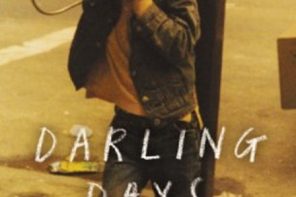This week Sinéad Gleeson visits theatre company Collapsing Horse as they rehearse their stage version of The Aeneid ahead of the Tiger Dublin Fringe Festival. Director Dan Colley and his cast are tackling Virgil’s epic poem with the help of puppetry, movement and music composed specially for the show. He tells Sinéad that his first encounter with the Greek and Roman classics was at school and he hasn’t abandoned them since. Readers looking for inspiration can find every aspect of life and death in the poem, he says, and he cites the example of Seamus Heaney’s translation of Book VI. It tells the story of the hero, Aeneas, travelling to the Underworld to seek out the spirit of his father. Heaney began his translation of this section after his own father died. Sinéad hears how the infamous horse of Troy will be carried on to the stage – it won’t be as difficult as you might think! – and she hears short performances from the cast.
Regan Hutchins speaks to the editors of a new literary journal in Belfast. The Tangerine is a new magazine for writers and, as editor Tara McEvoy explains, the political and artistic landscape has changed in Northern Ireland in recent years but the platform for new writers to reflect these changes doesn’t exist. Writer Jan Carson says that something as basic as cheap flights coming to Belfast as well as the migration of people to and from the region means that there are new experiences to be told and new voices to be heard. Fiction editor Michael Nolan hopes that with the arrival of the new journal writers won’t necessarily have to seek publication in the UK or in the Republic.
US writer Garth Greenwell’s debut novel What Belongs To You is set in Bulgaria where Garth himself used to live as a teacher. He joins Sinéad in studio to discuss his book which has been very well received. It features a nameless narrator and his relationship with Mitko, a young hustler he meets. Their relationship – hovering between a business transaction and a friendship – is played out against the background of the narrator’s upbringing in Kentucky and his uneasy relationship with his father. Greenwell discusses the autobiographical scope of the novel and its place in the long history of gay fiction.


